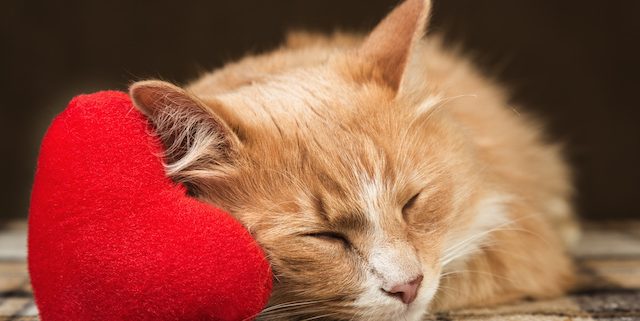Feline Heartworm Disease
Fortunately for cat owners, feline heartworm disease isn’t as prevalent a problem for them to deal with as dog owners. The feline heart is smaller than its canine counterpart. That’s why these invasive worms prefer canine hosts since they’ll have much more room.
However, cats can still become infected, just not as often. The disease is quite serious as it can easily prove to be fatal to cats. They don’t handle an infection of the worms very well. If the worms die soon after they reach their internal destination, the resulting reaction may be too much for the feline to handle. The parasite’s continued presence presents problems of its own too.
Causes
Mosquitoes harbor heartworm larvae. Whenever they bite a cat, it will become infected with the larvae. Once in the bloodstream, they will try to make their way to the blood vessels in the lungs or the heart.
Signs
Although these parasites cause a condition known as feline heartworm disease, the main problems occur in the lungs. They will block proper function, leaving cats unable to breathe properly. In its initial stages, this condition mimics the signs produced by congestive heart failure. The death of one or multiple worms isn’t particularly a good thing, as cats can just drop dead because of their demise.
Some of the most common symptoms of heartworm disease in cats include wheezing, gasping, and coughing. Appetite loss develops too. It is also quite common for felines to have episodes of vomiting as the disease progresses.
Diagnosis
Unfortunately, it’s not always easy to diagnose feline heartworm disease. It takes numerous tests to confirm a suspicion such as x-rays, laboratory tests, and a heart sonogram.
Treatment
As difficult as diagnosis can be, treatment of this condition is even more difficult. Cats can’t be given medication to deal with the disease like dogs can. Surgery to remove the worms physically is also virtually impossible.
If it’s confirmed that your feline has heartworm disease, then the vet will have to monitor him closely until the worms die on their own. This can take a couple of years to happen. You will have to take your cat to the vet on a periodic basis to have chest x-rays done.
Cats with this disease will suffer a number of respiratory symptoms. Supportive care can be provided to help improve quality of life. Intravenous fluids and steroids can help tremendously. Cats that are really suffering respiratory problems may even need to be provided with supplemental oxygen.
Prevention
Despite the complicated life cycle of the larvae, it is necessary for a mosquito to bite your cat in order for him to develop this disease. Therefore, you can keep your cat from being bitten. That’s virtually impossible though, even if you keep your cat indoors.

